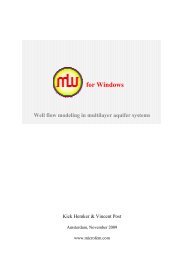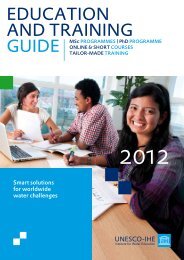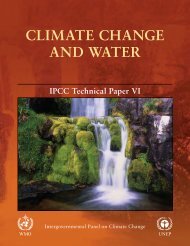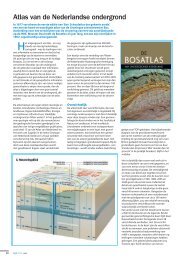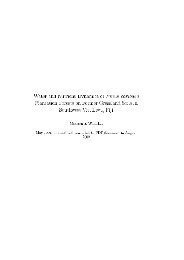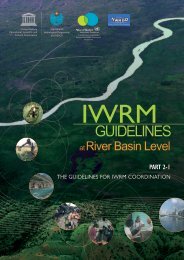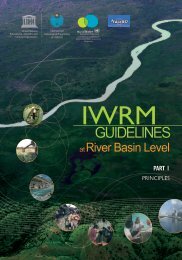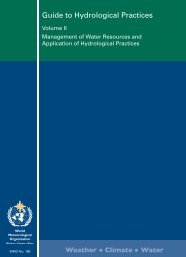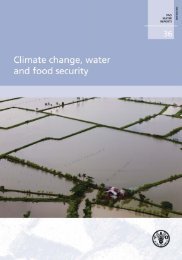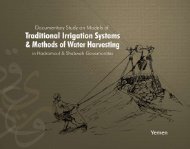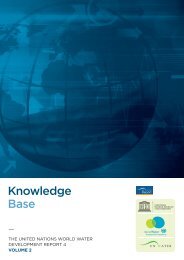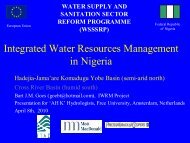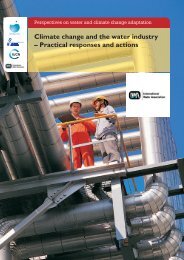Non-renewable groundwater resources: a ... - unesdoc - Unesco
Non-renewable groundwater resources: a ... - unesdoc - Unesco
Non-renewable groundwater resources: a ... - unesdoc - Unesco
- No tags were found...
Create successful ePaper yourself
Turn your PDF publications into a flip-book with our unique Google optimized e-Paper software.
GUIDELINES■ Focused administration of non-<strong>renewable</strong> <strong>groundwater</strong>, and the vital step of effective communicationwith stakeholders, will greatly benefit from the application of various key managementtools :• aquifer system characterisation and numerical modelling to facilitate adequate predictionof <strong>groundwater</strong> availability, the impact of abstraction on the aquifer itself, thirdparties (especially traditional users) and related aquatic and terrestrial ecosystems, andpotential <strong>groundwater</strong> quality changes during development;• socio-economic assessment of options for mining aquifer reserves, including considerationof potential alternative uses, the value of the proposed or existing use(s) inrelation to the in-situ value of <strong>groundwater</strong> and the probable ‘exit strategy’ when aquiferreserves are depleted;• an acceptable system of measuring or estimating volumetric abstraction will be thecornerstone for both realistic charging and enforcing regulations to discourage inefficientand unproductive uses.■ The value of detailed monitoring of <strong>groundwater</strong> abstraction and use, and the aquiferwater-level and quality response to such abstraction, cannot be overemphasised. This shouldbe carried out cooperatively by the water resource administration, stakeholder associationsand individual users. The existence of time-limited permits subject to periodic review willnormally stimulate permit holders to provide regular data on wells. It will be incumbent uponthe water <strong>resources</strong> administration to make appropriate institutional arrangements– through some form of aquifer database (databank or data-center) – for the archiving, processing,interpretation and dissemination of this information.■ Many aquifers containing large reserves of non-<strong>renewable</strong> <strong>groundwater</strong> are transboundary,either in a national sense or between autonomous provinces or states within a single nation,and there will much to be mutually gained through :formation of a high-level steering group and a joint technical group;operation of joint or coordinated <strong>groundwater</strong> monitoring programmes;establishment of a common <strong>groundwater</strong> database or mechanism for information sharing;• adoption of coordinated policies for <strong>groundwater</strong> resource planning, harmonization ofrelevant legislation and regulations, and procedures for joint resource management andconflict prevention and resolution.61



